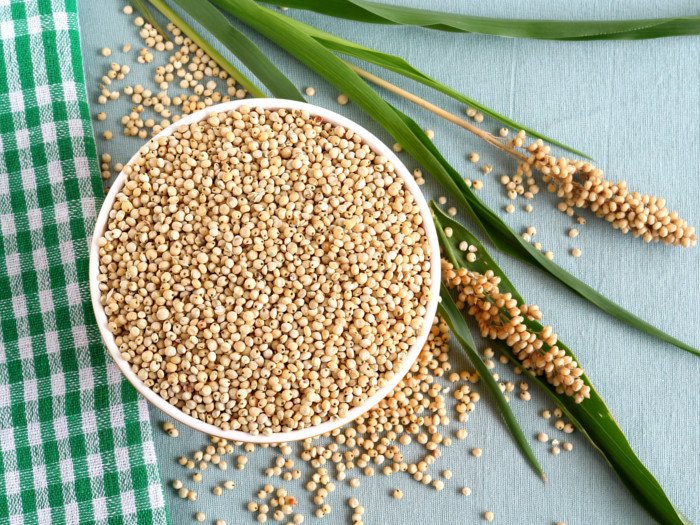Read full article By John Staughton @ Organic Facts Photo Credit: Shjutterstock
While the name may sound odd, sorghum has many health benefits. It’s a non-wheat grain that offers a dietary option to people with celiac disease, may help control diabetes, and improve digestive health, among other benefits.
Sorghum Nutrition Facts
According to the USDA sorghum is a powerhouse of nutrients. When included in the diet, it can provide nearly half of the daily required protein, a significant amount of dietary fiber, and B-vitamins vitamins like niacin, riboflavin, and thiamin, as well as high levels of magnesium, iron, copper, calcium, phosphorus, and potassium.
Health Benefits of Sorghum
The health benefits of sorghum in relation to our digestive process are many. Let’s discuss the benefits in detail below.
May Improve Digestive Health
Sorghum is one of the best foods out there for dietary fiber. A cup of sorghum grains contains almost 13 grams of dietary fiber, meaning that your digestive tract can keep your food moving along smoothly, preventing cramping, bloating, constipation, stomach aches, excess gas, and diarrhea. Furthermore, meeting or exceeding the recommended daily amounts of fiber intake can help to scrape off dangerous cholesterol (LDL) within the body, which can help to improve heart health and protect the body from conditions like atherosclerosis, heart attack, and stroke.
Complex Carbohydrates May Help Manage Diabetes
Excessive sugary, fiber-less, carbohydrates break down into simple sugars and wreak havoc on glucose levels in the body, which may lead to the development of diabetes, or causing chaos for people who already suffer from this disease. However, the complex carbohydrate, tannin-rich bran of sorghum has enzymes that inhibit the absorption of starch by the body, which can help to regulate insulin and glucose levels in the body. Thus, diabetics won’t suffer as many plunges and spikes in their glucose levels. For those who are diabetes-free, consuming moderate portions of whole grains as part of a healthy diet may prevent the disease altogether!
Gluten-Free Grain Option
Celiac disease is a severe allergy to gluten, primarily found in wheat-based products. Gluten is found in thousands of everyday food items, which can make it very difficult to find appropriate food options for those suffering from this gastrointestinal disease. Fortunately, the journal Clinical Nutrition has covered collaborative research, which highlights that alternative grains and grasses – such as sorghum – can be eaten safely by those suffering from this increasingly common condition. Choosing gluten-free grains can help this population eat a meal without side effects such as painful inflammation, nausea, and gastrointestinal damage.
May Improve Bone Health
Magnesium is found in high quantities in sorghum. Adequate amounts of magnesium can help calcium levels to be properly maintained, as magnesium increases calcium absorption in the body. These two minerals are also integral to the development of bone tissue and speed up the healing of damaged or aging bones. This can help prevent conditions like osteoporosis and arthritis, keeping you active and healthy into your old age.

